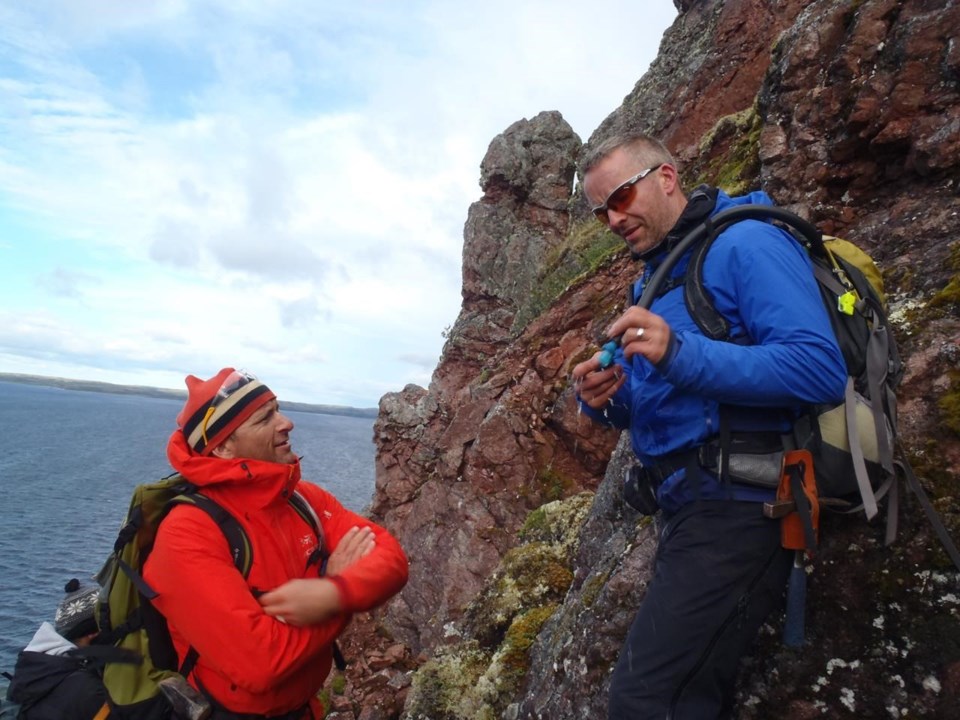Gordon Osinski has spent the last two decades studying craters left behind by meteorites.
The analysis of planetary geology has taken the Ontario university professor around the world and will now see him work on the NASA team that will develop the lunar surface science plan for the first people to walk on the moon in more than 50 years.
Osinski is the sole Canadian on the geology team recently announced by NASA for the Artemis III mission – the experts will plan the science tasks to be carried out by astronauts expected to land near the south pole of the moon as early as December 2025.
"It still feels pretty surreal, to be honest," Osinski, an Earth sciences professor at Western University, said in a phone interview. "It’s still sinking in."
NASA is planning several Artemis missions that will take humans back to the moon and explore more of the lunar surface with the goal of using the findings to inform an eventual mission to Mars.
The Artemis II mission – which includes Canadian astronaut Jeremy Hansen – will send a crew of four into space as early as November next year for a figure-8 manoeuvre around the far side of the moon. It will mark the first time any human has ventured so far from Earth.
The Artemis III mission, which Osinski is supporting, will be the first human-crewed mission to the lunar south pole and a return to the moon for the first time since 1972.
The geology team Osinski is a part of will plan astronauts' scientific tasks during their moonwalks, which will include field geology studies, the collection of lunar samples, imagery and scientific measurements. The samples and data collected will help deepen the understanding of fundamental planetary processes, NASA has said.
"Artemis III is going to be landing at the south pole region where it is very heavily cratered," he said.
"NASA hasn't announced exactly where the exact landing site is yet, so when that is announced, we'll be doing a lot of work with all of the available satellite imagery to come up with a plan for the sites that the astronauts will hopefully visit."
Osinski also serves as the scientific lead for Canada’s first lunar rover mission, which is set to head to the moon's south pole region as early as 2026. He said it's currently an exciting time for Canadians interested in planetary science.
“There's a lot of students and young scientists in Canada who are doing their graduate work in planetary sciences and there's definitely a thirst to be involved in these missions,” he said.
"We now have more Canadian scientists, engineers and other professionals involved in various missions not just with NASA, but with various space agencies around the world and more Canadian space missions than any other time."
Osinski, 47, grew up in the United Kingdom and moved to Canada in 1999. He began teaching at Western University in 2007.
While he has always been interested in science, he considers himself a “late comer” when it comes to his deep interest in space.
It was only after moving to Canada and working with NASA and the Canadian Space Agency that he really became fascinated with space exploration, he said.
“Since then, it's just expanded and snowballed to the point where now I'm involved in this team and looking at the geology for the first mission back to the moon," he said.
Chris Herd, a geologist at the University of Alberta who also studies meteorite impacts, said he was not surprised to hear Osinski had been selected for the Artemis III geology team.
"Oz is really an expert in the impact cratering process, which of course, as he will tell you, is the dominant geologic process in the solar system and the moon is a natural laboratory for that,” he said.
“If you're going to pick one Canadian researcher, it would be him.”
Herd worked on the Mars 2020 Rover Mission, a NASA-led mission that sent a rover to Mars to study the surface geological process to determine the possibility of past life on the planet.
He said the opportunities for Canadians to have a deep impact on space missions are increasing.
"We have generally always punched above our weight in a sense because it's a small community," Herd said.
“I think that Oz will definitely benefit in a similar manner. It's a very high profile type of thing and for him to be able to represent Canada in that effort I think will be significant."
This report by The Canadian Press was first published Sept. 1, 2023.
William Eltherington, The Canadian Press

